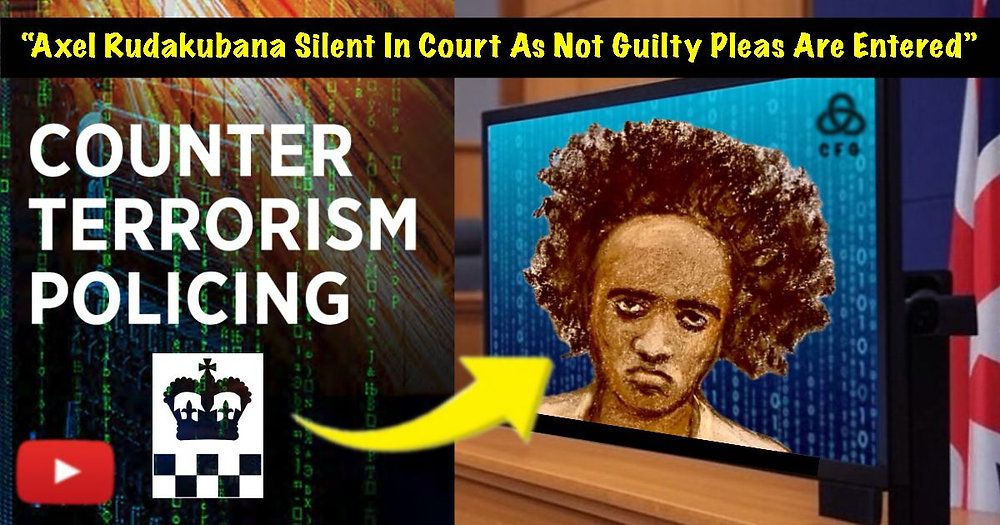Southport Stabbings: Not Guilty Pleas Entered as Axel Rudakubana Remains Silent in Court!
Axel Rudakubana, 18, has had not guilty pleas entered on his behalf after refusing to speak during his court appearance.
Appearing via video link from Belmarsh prison, with his face uncovered for the first time, Rudakubana, dressed in a grey tracksuit, declined to confirm his name or respond to the charges read out at Liverpool Crown Court. A prison officer confirmed he could hear the proceedings, and Mr. Justice Goose directed not guilty pleas to be entered for all 16 charges.
Rudakubana faces three counts of murder, 10 of attempted murder, and one of possessing a kitchen knife in connection with the July 29 attack at The Hart Space in Southport. Six-year-old Bebe King, seven-year-old Elsie Dot Stancombe, and nine-year-old Alice da Silva Aguiar were killed in the incident, which also left eight other children and two adults injured.
At the time of the attack, Rudakubana was 17. Merseyside Police have stated the incident is not being treated as terror-related. However, subsequent searches of his home in Banks, Lancashire, led to additional charges. These include producing ricin under the Biological Weapons Act 1974 and possessing an al Qaeda training manual under the Terrorism Act 2000. It has emerged that he had the terrorist training manual since 2021, prompting questions about what authorities may have known about the potential risk posed by Rudakubana before this fatal incident.
Rudakubana was also charged with producing the biological toxin ricin and possessing a terrorist training manual and not guilty pleas were entered on his behalf.
Rudakubana’s trial is set for January 20 at Liverpool Crown Court and is expected to last up to four weeks.
Around 15 family members of the victims attended the hearing. Rudakubana was seen swaying, bowing his head, and moving his jaw during the session. Addressing him directly, the judge said: “Your trial will now take place on 20 January, and you will be transferred to a more convenient place for attending court”, referring to him being moved from Belmarsh prison where he has been held so far to a location within easy access of Liverpool Crown Court.
ACCESS TO THE LAW: The Rights of the Accused in Court Proceedings
As part of our campaign to improve citizens’ access and understanding of UK Criminal law, we will be explaining the relevant UK legislation surrounding any case law relevant to our articles:
In the UK, all individuals accused of a crime are entitled to a fair trial, as protected by Article 6 of the European Convention on Human Rights (ECHR). This includes the right to participate in their defence but also allows the accused to remain silent or refuse to engage with court proceedings.
When a defendant refuses to speak or respond, the court must determine whether this silence is due to incapacity (e.g., a medical or psychological condition) or deliberate choice. If the latter, the defendant is classified as “mute of malice,” meaning they are intentionally uncooperative. This legal term ensures that the trial can proceed without unnecessary delay. In such cases, the court will enter not guilty pleas on the defendant’s behalf, preserving the presumption of innocence until proven guilty.
Defendants also retain the right to legal representation, even if they do not actively participate in proceedings. Lawyers can act on their behalf, ensuring their interests are protected throughout the trial. Importantly, a defendant’s refusal to speak cannot be used as evidence of guilt; the prosecution must prove their case beyond reasonable doubt based on the evidence presented.
This framework reflects the balance of rights and responsibilities within the justice system: the accused has the right to remain silent, but the court has a duty to ensure justice is carried out efficiently and fairly for all parties, including victims and the public.
This principle ensures that the justice system remains impartial, even in challenging cases like that of Axel Rudakubana, where the defendant’s refusal to engage requires careful handling to uphold both legal rights and procedural fairness.
Well, that’s all for now. But until our next article, please stay tuned, stay informed, but most of all stay safe, and I’ll see you then.






